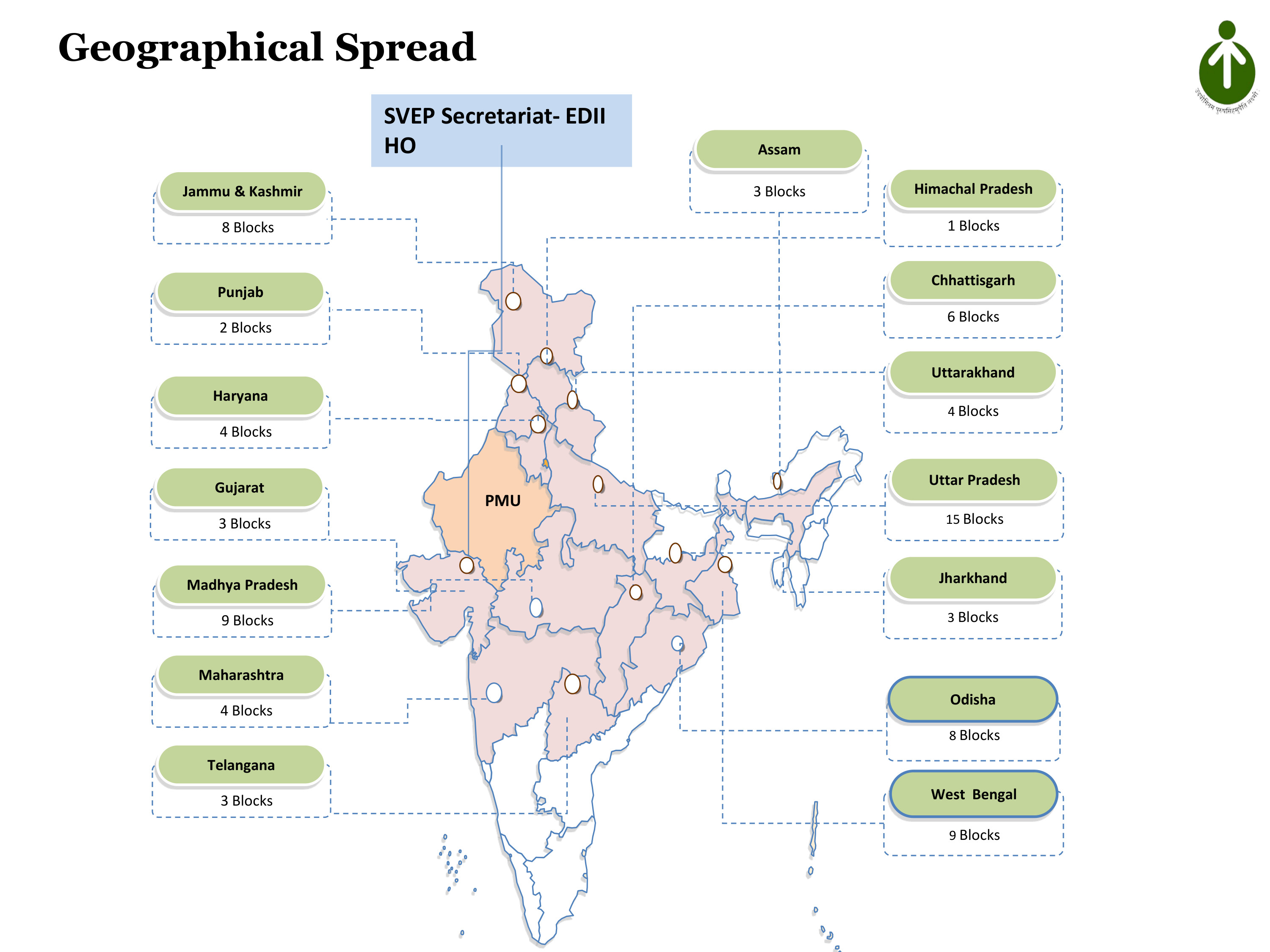About
India’s journey towards inclusive development has always hinged on the empowerment of its rural economy. In 2016, this vision took a strategic turn with the launch of the Start-up Village Entrepreneurship Programme (SVEP), a flagship initiative under the Deendayal Antyodaya Yojana – National Rural Livelihoods Mission (DAY-NRLM) by the Ministry of Rural Development (MoRD). Conceived to stimulate non-farm livelihoods and ignite grassroots entrepreneurship, SVEP emerged as a comprehensive ecosystem to empower rural entrepreneurs—particularly women and youth—to build resilient micro-enterprises across India’s villages.
Why Village Entrepreneurship Matters?
In rural India, where economic opportunities are often scarce, the need for village entrepreneurship has never been more pressing. According to data from the National Sample Survey Office (NSSO), less than 10% of the rural workforce is engaged in salaried jobs. This leaves a vast majority—over 90%—reliant on self-employment or informal work to sustain their livelihoods. For many, self-employment manifests in the form of small-scale enterprises, yet these ventures often operate at sub-optimal levels, barely providing income above the threshold of unemployment. The rural poor, in particular, depend on multiple sources of income to meet their basic needs, making entrepreneurship not just an option but a critical lifeline.
Objectives
To enable rural poor to set up their enterprises, in its proof of concept phase, by developing a sustainable model for Village Entrepreneurship promotion through integrated ICT techniques and tools for training and capacity building, enterprise advisory services and to provide loans from banks/SHG & federations.
Develop local resources by training a pool of village level community cadre (CRP EP) and build the capacity of the NRLM and SHG federations to monitor and direct the work of the CRP EPs.
Help the rural entrepreneurs to access finance for starting their enterprises from the NRLM SHG and federations, the banking systems including the proposed MUDRA bank.
Implemented SVEP Projects

 SVEP
SVEP